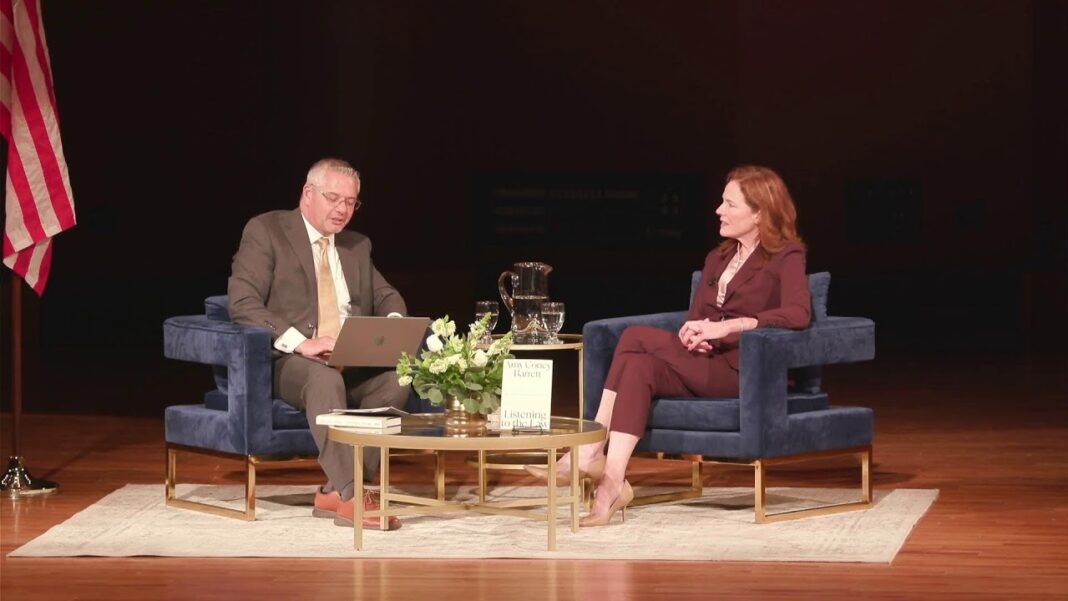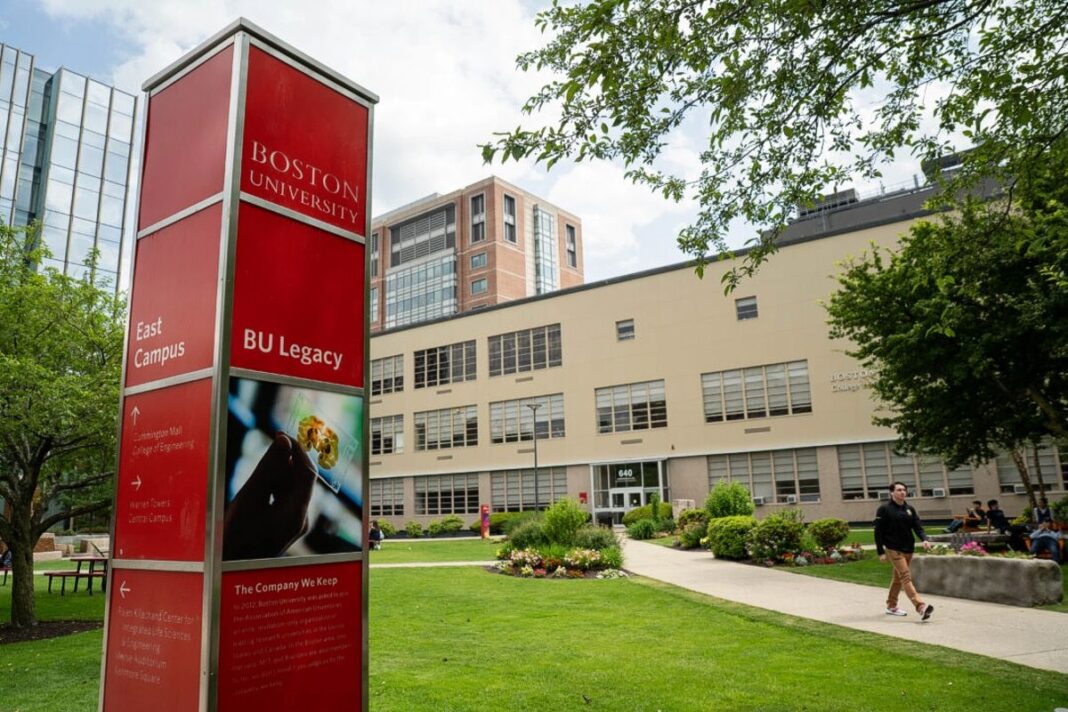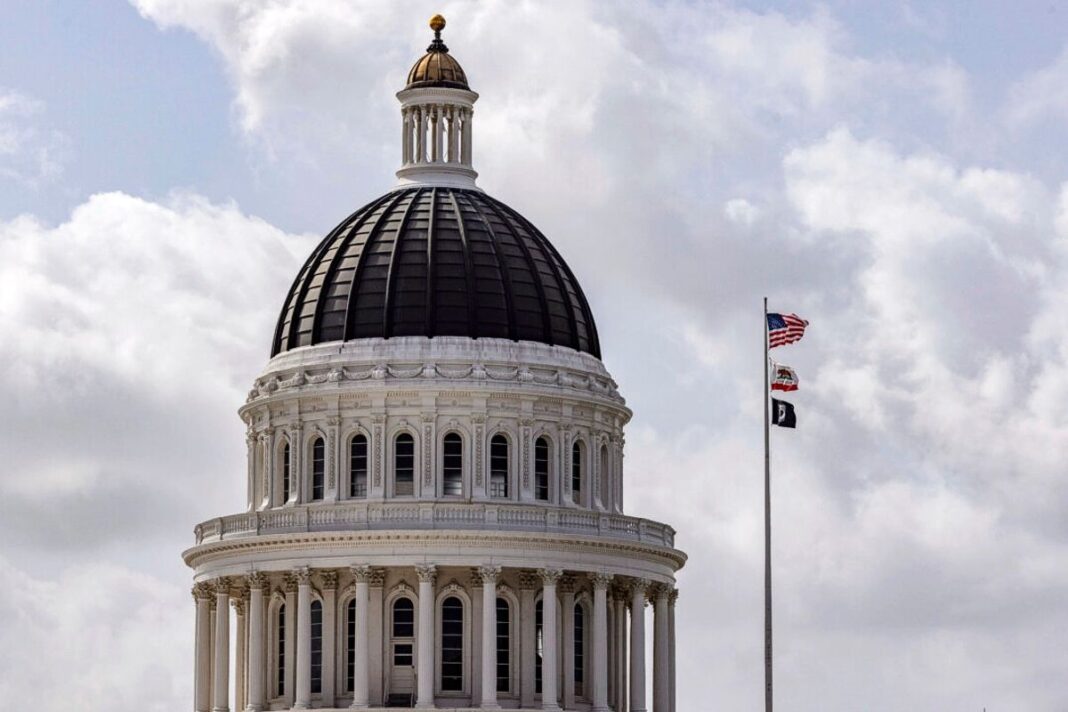Supreme Court Justice Amy Coney Barrett said the assassination of conservative commentator Charlie Kirk is a tragic reminder of why Americans must find ways to settle disagreements through civil discourse rather than violence.
Barrett made the remarks on Sept. 12 during an appearance at the University of Notre Dame in Indiana, where she was promoting her new book, “Listening to the Law: Reflections on the Court and Constitution.”
Asked about the killing at the start of the event, she urged students to model a better way of engaging across political divides.
Asked by the moderator to comment on Kirk’s killing, which took place on Sept. 10 in Utah, Barrett said it’s important to have disagreements in “a civil and collegial way.”
“Too often when I look around the country—I mean political violence is the most grotesque symptom of it, but there are others, too, just in online conversations and the way that people treat those with whom they disagree,” Barrett said.
“And that’s actually one of the points that I tried to make in the book. It’s just not a way to run a society.”
“You can have a spirited debate without tearing somebody down,” she added during the Q&A portion of the event.
Barrett briefly acknowledged her own security concerns, saying she felt safe under round-the-clock protection.
“I’m in very good hands,” she said.
Security for Supreme Court justices has drawn heightened attention since 2022, when a man was arrested near Justice Brett Kavanaugh’s home and charged with attempting to assassinate him.
A Nation on Edge
Just hours before Barrett’s appearance, Charlie Kirk’s widow, Erika, delivered her own emotional message during a livestream on Turning Point USA’s YouTube channel. It was her first public appearance since her husband’s assassination two days earlier, as he addressed students at Utah Valley University.
“The evil-doers for my husband’s assassination have no idea what they have done,” she said.
“The cries of this widow will echo around the world like a battle cry.”
Vowing to continue her husband’s work, she said the movement he launched as a high school project and turned into a national campus force would not be silenced.
By Tom Ozimek








